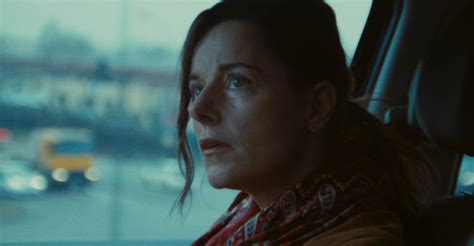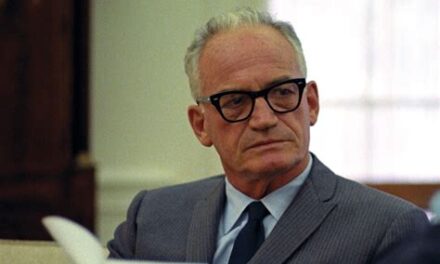Movie trailers frequently are misleading, selecting snippets from the film being promoted that are action-driven, edge-of-your-seat exciting, frightening, or tear-jerking—sometimes all four—for the not too surprising reason that studios know such things will pique an audience’s interest. Often, when viewers see the actual product, they’re surprised to find the intensity of the preview was a small part of the whole.
This is probably for the best for the simple reason that perpetual thrills frequently get old fast. (Remember Indiana Jones and the Temple of Doom?) But, regardless of what their trailers display, certain stories demand an almost unrelieved intensity to do what cinematic art often promises, but rarely delivers, by selecting moments in a believable sequence that highlight crises, conflicts, heartbreaks, and triumphs in a manner that lends clarity to everyday life.
Full Time (Á Plein Temps), directed and written by Éric Gravel is one such film. Without doubt, its trailer accurately catches the theme, mood, and pace of the film; it surely made me want to see it. And when I did, my reaction was one of complete satisfaction.
The story is contemporary and, in many ways, quotidian. The action begins with Julie Roy’s heavy breathing interrupted by the beeping of her alarm clock, the distressing signal we all know that tells us it’s time to get up and prepare for the workday. Julie (Laure Calamy), a divorced woman with two children, lives in a suburb of Paris. Her ex-husband, Alex, no more than a voice on an answering machine, is behind on his alimony payments and, since he is just a voice on a machine, unable to give any answer to Julie’s pleas that he take the children for the holidays.
The next few minutes are a whirlwind of dressing and feeding Nolan and Cholë who asks if they may go to the Jardin d’Acclimatation sometime. Julie’s answer is perfunctory as it must be; she has to pack them off to Madame Lusigny (Geneviève Mnich), a not unkind but somewhat querulous woman, who babysits them. With assurances that she will return on time to collect the kids, Julie rushes to work.
Sort of. If there is a villain in Full Time, it’s the train workers’ strike that has slowed human traffic to a snail’s pace. Like her ex-husband’s disembodied voice, the strike remains invisible except for rare glimpses of TV screens and background commentary on the radio (350 km of traffic jams at 8:00 a.m.; worse to come later). The crisis all but guarantees that Julie will be late as she rushes by train, on foot, by bus, and, as the strike intensifies, by hitchhiking. When she covers the final leg of her trek to begin a workday whose prelude has been anything but leisurely, she gets a call from her bank about an overdraft and late mortgage payment.
Julie works as a head chamber maid at a five-star Parisian hotel. She receives her orders from her curt, “fed up” boss, Sylvie (Anne Suarez). Julie must prepare the “Churchill Suite” for one Mr. Yoshida, make beds, scrub bathroom countertops, and train a new maid.
The one ray of sunlight for Julie in this cloudy, small world is an interview for a new job the next day, provided she can get one of the maids to sub for her. Almost necessarily, she must lie to get time off for the interview. From occasional references to her past, it seems she was once in marketing and has a master’s degree. The opportunity is for a position inferior to the one she once held, but no matter. It’s in her field, and she’s desperate for a change and more money. Once the interview is over, she must collect the kids as promised, but with the strike impeding her at every move, she’s late.
There’s more about the plot—a lot more. But knowing the plot point-by-point cannot convey the riveting quality of Full Time. Gravel’s scripting and direction and Mathilde Van de Moortel’s superb editing lend a frenetic, nightmarish procession to the scenes. Minutes of the film are in trains (when they’re running), cars, and buses with scenery (almost invariably in the dim hours of dawn or twilight) flashing by as Julie stands, grips a support in a bus or, when she can sit, tries to relax. Everything is movement and tension. Moreover, Gravel and his cinematographer Victor Seguin do not shoot scenes as if conventionally unfolding in time. For example, at Julie’s son’s birthday party, the director gives us a series of moments lasting a few seconds, each one cutting to the next: Julie’s preparing the cake, welcoming the guests, playing games with the children, tidying up. Her life is a checklist leading to the end of the day when she tumbles back in bed to await the inevitable alarm.
Adding to the excellence of the direction, cinematography, and editing is Irène Drésel’s music: electronic, throbbing, and relentless, imitative of Julie’s life, challenges, and the pace she is compelled to maintain to keep up in an unforgiving world and, more to the point, an indifferent dimension, time. As for the acting, all of the principals are unexceptionable, especially Calamy whose nuanced performance won best actress at the Venice Film Festival.
Few movies succeed in making the mundane compelling and even heroic. Full Time does, with a heroine who renders endurance a high virtue. Made in 2021, it was not released in the U.S. until March 13th of this year. That may explain why it was not among the Oscar nominees although it may qualify for next year’s. If there’s currently a better international film or a better film period, I don’t know what it is.














